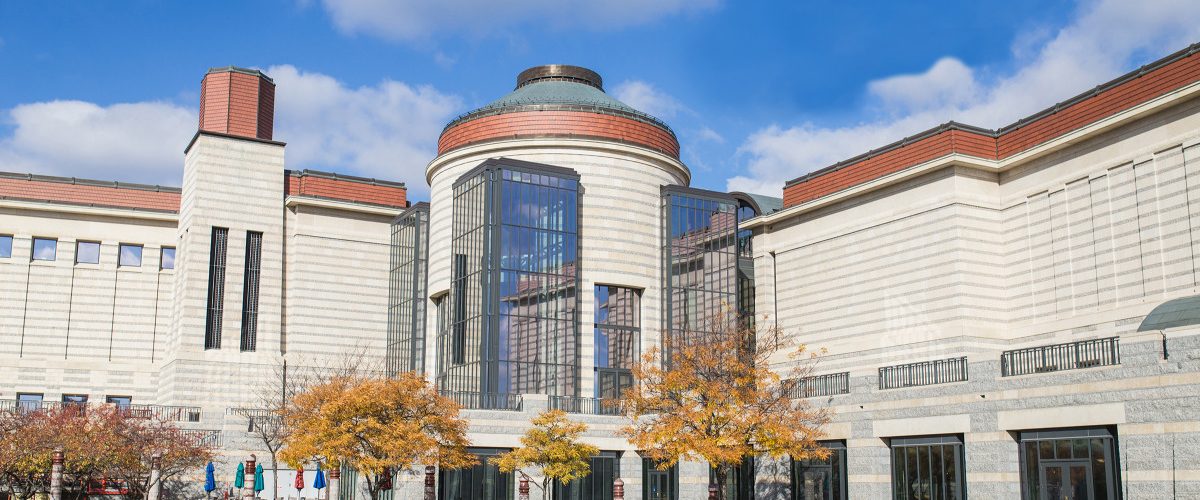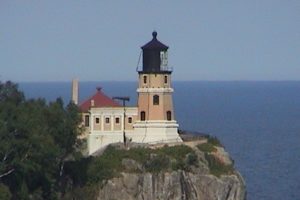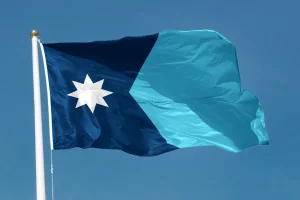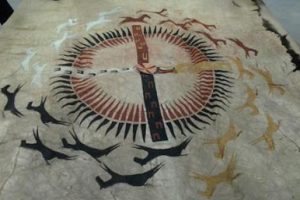Smithsonian Traveling Exhibition Righting a Wrong: Japanese Americans and World War II Opens April 23 at the Minnesota History Center
Exhibit opening events include Taiko drumming, traditional Japanese dancing, origami and a documentary film screening.
(St Paul, MN) — The Minnesota Historical Society is pleased to announce the opening of the Smithsonian traveling exhibition Righting a Wrong: Japanese Americans and World War II on April 23 at the Minnesota History Center. The exhibition examines the complicated history and impact of Executive Order 9066 that led to the incarceration of Japanese Americans following the attack on Pearl Harbor. Righting a Wrong will remain on view through July 3. The exhibition will continue touring museums and other cultural organizations through the fall of 2023.
April 23 Opening Day Events, 11 a.m. – 3 p.m.
The opening day will feature Taiko drumming from TaikoArts Midwest, traditional Japanese dancing from Sansei Yonsei Kai, origami with the Saint Paul-Nagasaki Sister City Committee and screenings of the documentary And Then They Came for Us at noon and 2 p.m. Opening day events are included with the price of admission.
History Exhibit Themes Relevant Today
Embracing themes that are as relevant today as they were 75 years ago, Righting a Wrong looks at immigration, prejudice, civil rights, heroism and what it means to be an American. The exhibition explores the complex history through historical images, personal stories and objects from those incarcerated at the camps. A duffle bag used by the Imada family when they were relocated to the Gila River camp in Arizona reflects the restrictions to bring only what they could carry. Takeo Shirasawa’s 1943 high school diploma from the Poston camp in Arizona exemplifies the experience of thousands of other teens who had to complete their high school education in camps.
Executive Order 9066
Following the attack on Pearl Harbor by Japan on Dec. 7, 1941, President Franklin Roosevelt signed Executive Order 9066 which sent 75,000 Americans of Japanese ancestry and 45,000 Japanese nationals to incarceration camps. Ten large, barbed wire-enclosed incarceration camps and dozens of other installations were scattered west of the Mississippi, far from their homes from March 1942 to March 1946. Young and old lived crowded together in the hastily built camps, endured poor living conditions and were under the constant watch of military guards for two and a half years. Meanwhile, brave Japanese American men risked their lives fighting for the United States.
Some 40 years later, members of the Japanese American community led the nation to confront the wrong it had done. The U.S. Congress formally recognized that the rights of the Japanese American community had been violated and President Reagan signed the Civil Liberties Act of 1988, providing an apology and restitution to the living Japanese Americans who were incarcerated during World War II.
Righting a Wrong: Japanese Americans and World War II was developed by the National Museum of American History and adapted for travel by the Smithsonian Institution Traveling Exhibition Service. The national tour received federal support from the Asian Pacific American Initiatives Pool, administered by the Smithsonian Asian Pacific American Center, the Terasaki Family Foundation, and C. L. Ehn & Ginger Lew.
The exhibition is based on the exhibit of the same name on view Feb. 17, 2017, through March 6, 2019, at the National Museum of American History in Washington, D.C.
SITES has been sharing the wealth of Smithsonian collections and research programs with millions of people outside Washington, D.C., for more than 65 years. SITES connects Americans to their shared cultural heritage through a wide range of exhibitions about art, science, and history, which are shown wherever people live, work and play. For exhibition description and tour schedules, visit sites.si.edu.
Exhibit and Program Support
Righting a Wrong at the Minnesota History Center is made possible in part by the Legacy Amendment through the vote of Minnesotans on Nov. 4, 2008.
Additional funding for Righting a Wrong at the History Center is provided by the Earl K. and Ruth N. Tanbara Fund for Japanese American History in Minnesota and the Ginger Lew and Lenny Ehn Gift.
Support for opening day events at the History Center on April 23 has been provided by the Marney and Conley Brooks Fund.
Location and Hours
The Minnesota History Center is located at 345 Kellogg Blvd. W. in St. Paul. Hours are 10 a.m. to 4 p.m. Thursdays through Saturdays, and 11 a.m. to 4 p.m. Sundays. Auxiliary aids and services are available with advance notice. For more information, visit www.minnesotahistorycenter.org, call 651-259-3000 or 1-800-657-3773.
Admission
Admission to Righting a Wrong is included with regular History Center admission of $12 for adults, $10 for seniors and college students, $6 ages 5 to 17; free age 4 and under and MNHS members.
Health and Safety
Protocols designed to minimize the risk of spreading COVID-19 can be viewed on the health and safety procedures page of each site’s website, which can be found on our visit page. Masks are encouraged while indoors at all MNHS sites and museums. For more information, visit our website at mnhs.org/covid-19.
About the Minnesota Historical Society
The Minnesota Historical Society is a non-profit educational and cultural institution established in 1849. MNHS collects, preserves and tells the story of Minnesota’s past through museum exhibits, libraries and collections, historic sites, educational programs and book publishing. Using the power of history to transform lives, MNHS preserves our past, shares our state’s stories and connects people with history. Visit us at mnhs.org.






